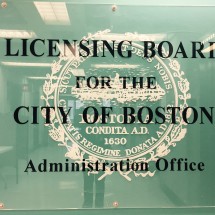Whenever one wishes to commence a liquor store or restaurant business at a location where there was previously no such business, either by applying for a new license or through transfer of an existing license from another location, the applicant will need to show the local licensing authority that there is a “public need” for such a new licensed location. G.L. c. 138, § 23. “Public need” is hard to define, however, and sometimes harder to prove.
A local licensing authority has discretion to determine “public convenience,” “public need,” and “public good,” with respect to whether to grant a license to sell alcoholic beverages. Need in the literal sense of the requirement is not what the statute is about. Rather the test includes an assessment of public want and the appropriateness of a liquor license at a particular location. Consideration of the number of existing licenses in the area and the views of the inhabitants in the area can be taken into account when making a determination, as well as a wide range of factors-such as traffic, noise, size, the sort of operation that carries the license and the reputation of the applicant. The opposition of the neighborhood, albeit an important factor for a licensing board to consider, does not convert the exercise of a licensing board’s adjudicatory function into a rubber stamp.
The local board’s broad discretion, however, does not mean that the local board can d whatever it pleases whenever it chooses to do so. In order to withstand review either at the Alocholic Beverages Control Commission or in court, the local board must state the reasons for its decision whether or not to issue the liquor license. General findings are insufficient, and if the licensing board does not make sufficient findings, it remains the ABCC’s obligation to articulate the findings of fact, which were the basis of the conclusions it drew, and not merely adopt the findings of the Board. For instance, M.G.L. c. 138, s.15A requires a specific process for a Board to follow when a church, school or hospital lies within a five hundred (500) foot radius of the proposed licensed premises.
Aside from overcoming difficulties with nearby churches, hospitals and schools, developing a showing of “public need” to present at the hearing before the local licensing board therefore requires input and support from the surrounding community generally in the form of letters or personal appearances at the hearing. Letters or personal appearances from neighborhood associations or local politicians, especially in Boston, is absolute “must” should the applicant expect to show a “public need.”

